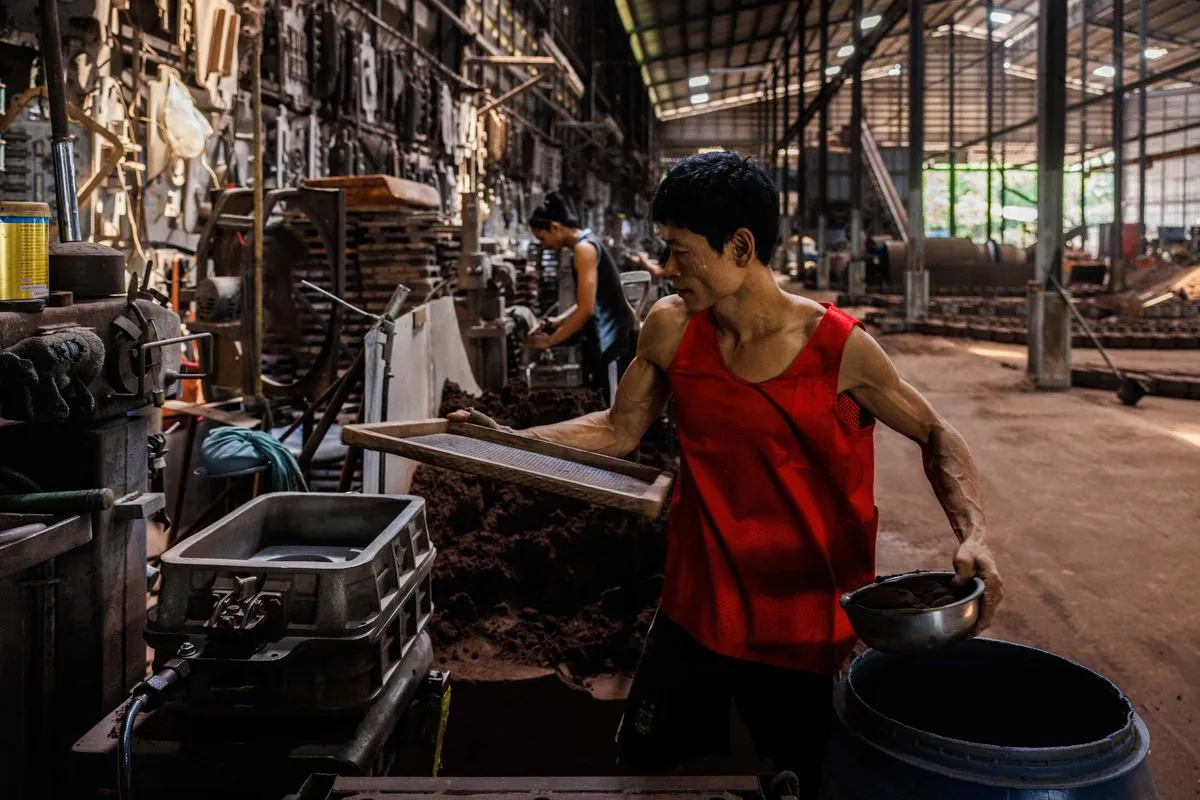Thailand Delays Minimum Wage Hike, Economic Stimulus Plans Unveiled
Thailand postpones minimum wage increase due to committee issues. New 400 baht daily rate for large businesses part of broader economic strategy, including stimulus package and growth projections.

Thailand has announced a delay in implementing its planned minimum wage increase, originally scheduled for October 1, 2024. The postponement, expected to last approximately two weeks, is due to a lack of quorum in committee meetings responsible for finalizing the wage hike details.
Pairoj Chotikasathien, the Labour Ministry's permanent secretary, stated, "We will move forward as quickly as possible." The new minimum wage of 400 baht ($12.15) per day will only apply to businesses employing more than 200 people, up from the current range of 330 to 370 baht.
This wage increase is part of the ruling Pheu Thai party's campaign promises, with plans to further raise the minimum wage to 600 baht by 2027. The initiative is a component of the government's broader strategy to stimulate growth in Southeast Asia's second-largest economy.
Thailand's economy has faced challenges in recent years, including:
- High household debt levels
- A slowing manufacturing sector
- Recovery from the COVID-19 pandemic impact
To address these issues, the government has unveiled a 450 billion baht stimulus scheme. Under this plan, eligible individuals will receive 10,000 baht each to spend in local communities. The first phase of this program is set to commence before the end of September 2024.

Thailand's economic landscape has undergone significant changes over the years:
- The country's minimum wage system was introduced in 1973, marking a milestone in labor rights.
- Thailand experienced rapid economic growth from the 1960s to 1990s, known as the "Asian miracle."
- The nation faced a severe economic crisis in 1997-1998 during the Asian Financial Crisis.
- Thailand's economy heavily relies on exports, accounting for over two-thirds of its GDP.
- The country is the world's largest exporter of rice and a major producer of rubber.
- Tourism contributes significantly to the economy, accounting for about 20% of GDP pre-pandemic.
- Thailand's automotive industry is the largest in Southeast Asia, earning it the nickname "Detroit of Asia."
The country has implemented various economic strategies to maintain growth and competitiveness:
- The "Thailand 4.0" economic model aims to transition the nation towards high-income status.
- Thailand boasts a universal healthcare system, implemented in 2002.
- The country's stock exchange, SET, established in 1975, plays a crucial role in its financial landscape.
Despite economic challenges, Thailand maintains a consistently low unemployment rate, often below 1%. However, the country faces demographic challenges with a rapidly aging population, projected to become a super-aged society by 2031.
The central bank expects the Thai economy to grow by 2.6% in 2024, an improvement from the 1.9% growth recorded in 2023. This projection takes into account the government's economic stimulus measures and the gradual recovery of various sectors.
As Thailand navigates these economic changes, it continues to build on its unique history and strengths. The country, which changed its name from Siam in 1939, has never been colonized by a European power. It boasts a high literacy rate of over 93% and is home to impressive infrastructure projects like the Bhumibol Bridge, the world's largest asymmetrical cable-stayed bridge.


































